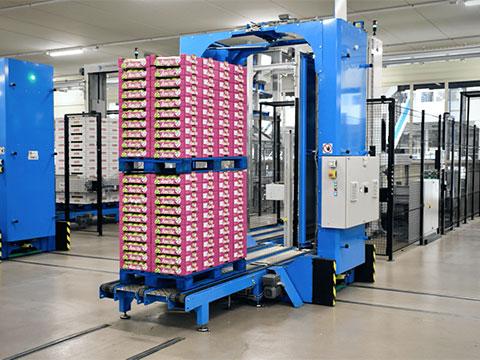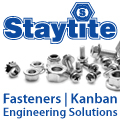
Posted to News on 9th Aug 2022, 11:00
A safe and efficient future for food and drink manufacturing

Marcus Schneck, CEO of Norelem, looks at how the company’s range of hygienic design products offer several benefits to food and drink manufacturers.
In a post-pandemic world, we are as hygiene conscious as ever before. One of the industries championing hygiene is food and drink manufacturing and today it is more important than ever to uphold this renewed focus on hygiene.
There has been a newly refreshed focus on people’s health over the past two years, with one result being a clamping down on regulations in the food and drink manufacturing industry. Due to these tighter regulations every element in food and drink manufacture is being looked at with a much closer lens, from everything including best practices in health and safety to the implementation of higher quality materials.
While these regulations certainly make things safer for consumers, actually adapting to these regulations can be a challenge for manufacturers, from both an execution and cost perspective. For some having to replace many elements of a manufacturing system at once seems like a big hill to climb as bespoke components are expensive and can take a long time in the order and delivery process. This is where Norelem’s hygienic design standard components offer an advantageous solution.
Being able to uphold the safety standards of the food and beverage manufacturing industry is imperative to its success. With a growing need for food and drink manufacture, being able to facilitate and drive innovation in the safety standards of this industry is one of the key benefits of the hygienic design standard components.
Norelem’s hygienic design range of standard components, such as the A4 quality stainless steel products, can deliver the highest hygiene standards while increasing manufacturing efficiencies. The material’s used to make the components give them a longer lifetime. In addition, the products are designed with special radii, transitions, bevels, and surfaces designed to prevent wetting – they are therefore easy to clean, if they need to be cleaned at all. Through the reductions in downtime and maintenance time that the products offer, the food and drink manufacturing industry will be able to operate more efficiently in the future.
In addition, the hygienic design standard components guarantee minimal contamination from harmful microorganisms that cause illness or degrade product quality, as well as allergens, across production lines – and now more than ever is it critical that safety standards are being met, especially with the increasing need for food production, as well as the world’s renewed focus on health and safety. These product specifications are all striving for reductions in maintenance time, and a cleaner, safer manufacturing space, ensuring a prolonged lifetime of the machinery overall.
In addition to the reduction in maintenance and down time, which makes for more economical products, the response to these regulations is in turn making the food and drink manufacturing industry safer. For example, through visually detectable plastics, contaminated food can be identified quicker. But also, the contamination of food can be prevented from occurring at the source.
The stricter guidelines for food manufacturing as well as the products innate benefits have made for an increased demand for hygienic design products from manufacturers. As well as implementing classic standard components like clamping levers or indexing plungers, manufacturers are already implementing hygienic design products like screws, nuts, and levelling feet, to connect machine parts together. As guidelines become stricter, changes to the technology are going to be required, which is why Norelem is working continuously to expand the hygienic design range over the coming years.
The benefits of using standard components rather than bespoke components in Food & Drink manufacturing are numerous. What will probably be most appealing to manufacturers is the reduction in costs and design time. A bespoke system is of course made to order and has a high cost associated with it, whereas standard components are high in stock and have short delivery times. In addition, standard components have guaranteed functions and a compiled number of special design properties such as radii and surfaces. But, arguably the most beneficial is that standard components can be quickly and easily exchanged in case of the need for repair, whereas a bespoke system would have to be reordered, and operations would have to be put on hold.
When it comes to designing and choosing hygienic design products, engineers and manufacturers must take the current guidelines into consideration as well as any outside influences, such as contact with aggressive media, or the temperature range the products can withstand.
Norelem’s hygienic design standard components play an essential role in upholding the safety standards of the food and drink manufacturing industry. It is through the reductions in downtime and maintenance time that they make the industry more efficient and through the products extended lifetime, that they make it more sustainable.





